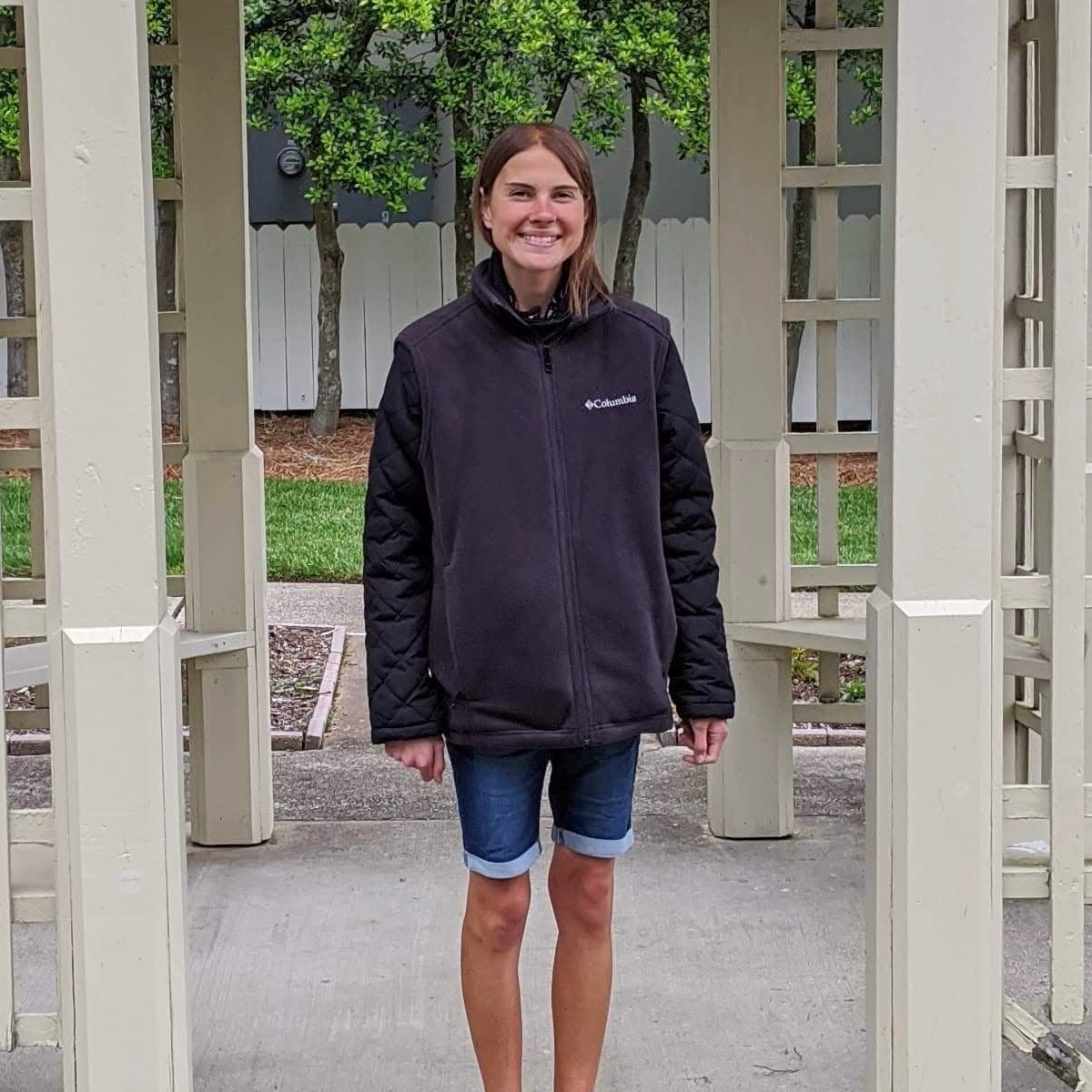
The moment a person becomes a believer, they are normally extremely curious to learn more about Christianity. As soon as they have placed faith in Jesus, they have a hunger to learn more about God and to make Him known.
Most of us experience this type of hunger when we are new believers because we genuinely want to share the message of the gospel with everyone we know. This is healthy and good, but sadly, this eagerness can wear off with time.
For many of us who have been believers for many years, we can reflect back on the mistakes we made and avoid making these same mistakes in the future.
Instead of repeating past mistakes, new believers will be able to learn and apply these lessons to their own lives. Being a new believer is full of many ups and downs, yet it is one of the only times in your Christian walk when you have the eager fire to learn more about Jesus.
It is during this time that new believers need to put their hunger to use and learn all they can about Jesus. They need to be active in Bible reading and going to God in prayer.
Through these early times of being a believer, you have the opportunity to solidify your faith and become a strong believer. If you are able to, try to attend a Bible college, take a few theology courses, or just spend time with other believers.
Being a new believer is a small amount of time compared to when you will be a mature believer, so it is best to make the most of every opportunity. I remember when I was a new believer, I had a unique zeal for spreading the gospel that died out with time.
The same spark I had at the beginning faded after many failed attempts at sharing the gospel. It is with this thought in mind that there can be many points of advice offered for the new believer.
Photo Credit: ©iStock/Getty Images Plus/pixdeluxe

1. Don't Be Too Zealous
One advice for new believers is to not be too zealous. As I mentioned, when I first became a believer, I was a bit too zealous. It is good to have zeal; however, you also have to know what you are doing.
This is something my evangelism teacher failed to teach my peers and me in undergrad. Our major assignment for the class was to share the gospel with two unbelievers. This alone is a huge task for mature Christians, much less a class full of new believers.
By the time I took this class, I had only been a believer for about a year. The thought of sharing the gospel with two unbelievers was exciting but also scary.
I had selected two individuals whom I was going to share the gospel with — one was a Jehovah's Witness and the other was an atheist. While my zeal was there, my logical mind wasn't. I was under the impression that anyone would want to talk about Jesus when, in actuality, they don't.
The person I spoke to who believed in atheism closed the door in my face even though I had known her for years, and the Jehovah's Witness was convinced she already knew Jesus.
With my lack of experience, I wasn't able to successfully share the gospel with either of these individuals, and I felt like a failure. If this is the same for you, know that you are in no way a failure. You tried your best, and that's all that matters.
New believers need to be educated on how to use their zeal properly. Before sharing the gospel, you need to build up a strong relationship with the individual.
Don't just drop the gospel on them like a bomb. Instead, take your time to talk with them, get to know them, and share Christ with them at the pace you see that fits. Zeal is a good thing if you know how to use it properly.
Photo Credit: ©GettyImages-RyanKing999

2. Know Your Audience
A second piece of advice for new believers is to know your audience. Similar to the point above, you have to know who you are talking to. Therefore, when you are sharing the gospel or talking about how you came to know Jesus, know your audience.
The gospel writers all knew their audiences and wrote in accordance with them. In the same way, as a new believer, you need to know your audience when you are sharing the faith with them.
As part of knowing your audience, you will know the best way to share Christ with them. There are people of all sorts of different faith backgrounds and beliefs.
It is important to know about these different belief systems and schools of thought in order to be able to connect with them. By being aware and knowledgeable about these different beliefs, you will be able to know the best way to share Christ with them.
Maybe you meet someone and get to know them, yet you still don't know the best way to share Christ with them. If this is the case, share your testimony.
Nobody can argue with your testimony, nor can they argue with your own personal experiences of seeing Jesus at work in your life. Always keep this on the back of your mind and know that you can go back to this when you are sharing the gospel with any type of audience.
Photo Credit: ©GettyImages/monkeybusinessimages

3. Be Active in Bible Reading
A third piece of advice for new believers is to be active in your Bible reading. This is a piece of advice that many new believers neglect. They believe that if they go to church, they will learn everything they need to know to grow in Christ.
This isn't true, as the only true way to grow in your own knowledge of Jesus is to be active in Bible reading and in prayer to God. You don't have to read the Bible all in one sitting but try to read some of it every day.
Try to read a chapter each day and see how much you learn in a week or in a month. You don't have to start in Genesis and read straight through. Instead, you can start in the gospels or maybe you could follow a Bible reading plan.
There are many Bible reading plans on the Internet that can help you read the Bible in a year. It is important to remember that it is not a race when you read the Bible. The Bible is a book you will continue to read throughout your life, and you will constantly be going back to it.
As you're reading the Bible daily, you will start learning many stories. There are many important lessons to be learned in each book of the Bible.
Don't neglect the Old Testament as you are reading the Bible because this first part of the Bible is vital to fully understand the importance of Jesus' death on the cross as well as His resurrection.
Photo Credit: ©Getty Images/pcess609

4. Be Active in Prayer
A fourth piece of advice for new believers is to be active in prayer. Just as you can't learn about someone without talking with them, you can't learn about God unless you talk with Him in prayer. You hear back from Him through reading His Word, the Bible.
When you go to God in prayer, be honest and genuine. You don't have to say lengthy prayers, nor do you agree to have the words "just right." Instead, be real with God and tell Him how you are feeling.
God wants to hear all of your thoughts, worries, and concerns. There is never a time when God doesn't have time to listen to your prayers. He is above time, and He is not dictated by time.
Therefore, don't be afraid to go to God in prayer and tell Him how you are really feeling. You don't have to hide any feelings from Him. He sees your heart and He is able to provide you the comfort that only He can provide.
Maybe sharing your feelings is difficult, but God wants to hear them. Even if you think nobody will understand, God understands, and He will lift you up. For new believers, it can be hard to get into the habit of going to God often in prayer, but it is vitally important.
Through prayer, you will be able to build a strong foundation for your faith, a deep relationship with Christ, and a better understanding of who God is. Not to mention that prayer can help you feel less alone and ease your many fears.
Photo Credit: ©Pixabay/Creative Commons

5. Seek Out a Spiritual Mentor
A fifth piece of advice for new believers is to seek out a spiritual mentor. Yes, I understand this can be hard, yet it is important. A spiritual mentor is someone who can help you in your walk with Christ and point you back to Him.
During my time in undergrad, I had a spiritual mentor; however, once school ended and my spiritual mentor moved away, I didn't have a spiritual mentor anymore. This can be harmful to your Christian growth if you are a new believer.
Seek out a spiritual mentor and see who would be the right fit for you. Maybe this could be your pastor, a friend, or a family member. The purpose of the spiritual mentor is to help you when you are struggling, to encourage you, and to bring your focus back to Jesus.
Spiritual mentors are mature believers, who are active in their faith and desire to help others in their walk. If someone you know fits this description, maybe they could be the person you reach out to.
If you don't know of anyone who fits this description, keep looking or talk with your pastor about finding a spiritual mentor.
If you cannot find a spiritual mentor, try to go to God in prayer and ask Him to help you find one. God is faithful and you can trust Him. He can lead you to the right person or He might lead the right person to you.
Be patient and wait for what the Lord is bringing. Every new believer needs a spiritual mentor because it will help them in their overall walk with Christ and their growth into becoming strong believers.
New believers need a lot of help as they navigate the Christian walk. A few pieces of advice for new believers are to not be too zealous, to know their audience, to be active in reading the Bible, to be active in prayer, and to seek out a spiritual mentor.
For further reading:
What Should New Christians Know about the Bible?
5 Resources for Christians Struggling to Read the Bible
Photo Credit: ©iStock/Getty Images Plus/millann

Originally published Friday, 15 September 2023.
